Our Perspective
EOV Wellness Project® is the culmination of years of research and creative inputs from a global team of experts. The program we offer you today is reflective of both a scientific and an artistic enquiry into wellness.
We are multi-disciplinary, we are global
Our contributors are doctors, academics, musicians and visual artists. All of them bring their particular lens – whether it is the healing power of music, or the effect that sleep has on our mental wellness.
We are rooted in research and facts
Led by our Medical Director, Dr. Chris Stewart-Patterson, our commitment is to distil the best medical information we have available to us today, and to create a program that is rooted in research.
We don’t sell miracle cures, we create self-awareness
EOV Wellness Project® isn’t one of those ‘disruptive’ programs that surprises you with a new concept that no one’s ever heard of before. What we do is to give you a chance to look at each component of your own life from a different angle and perspective.

Meet EOV’s Medical Director
Dr. Chris Stewart-Patterson, MD is Occupational Medicine expert. As our Medical Director, Dr. Stewart-Patterson has been fundamental to the development of EOV Wellness Project®. Thanks to his leadership, EOV has been able to distill the best medical information we have available to us today, to create a course that is rooted in solid research.
Dr. Stewart-Patterson received his MD from the University of Calgary in 1988 and has practiced Occupational Medicine since 1989. He has provided occupational medical services to police, fire, corrections officers, and Canadian Armed Forces, among other organizations where he clinically assesses the effects of stress. He has counselled corporate executives on stress management and wellness for years.
As a long-term educator he has lectured internationally on medical and psychiatric fitness, including a series of lectures at Harvard Medical School. He has also been a lecturer at the Wellington School of Medicine at the University of Otago in New Zealand and is the program director of a Stress Management course at Harvard Medical School. He is faculty and a scholar at the Harvard Macy Institute where he has taught Health Science faculty on medical educational principles.
Why employers need to prioritize employee well-being – in all forms
Over the course of my medical career, I’ve seen the toll that stress can take on every facet of our lives.
After working in emergency rooms and intensive care units early in my career, I became more and more interested in what we could do to prevent some of these problems in the first place. That led me to occupational medicine, working to help people in intense jobs better manage their stress, from firefighters and armed forces members to my fellow physicians and executives in high-stakes positions. As I’ve built a career on championing preventative wellness in all aspects of life, I’ve only seen the need become more important in the corporate world.
Today, some of the burnout I’ve seen is apparent even in fields and jobs that traditionally may not be considered high stress. Increasingly, I’m seeing business leaders in organizations of all sizes contend with stressed out employees – and the consequences that come with it. The pandemic has unquestionably accelerated wellness challenges the corporate world was already facing. We’ve been living with greater risks of serious illness, coping with physical and social distancing and in many cases, adjusting to new ways of working. All of that has taken a toll on our well-being.
Combined with that – and maybe because of it – employers are struggling with retention and what the “Great Resignation” trend might mean for their businesses. While there are numerous reasons and nuances behind why people may be leaving their workplaces, showing you value your employees’ wellness is more important than ever.
As organizational leaders look ahead at what work will be like post pandemic, employee wellness in all forms must factor into the plan. Giving employees the tools that they need to take care of their well-being shouldn’t be a perk – it should be the status quo and a fundamental to how you operate. Not only will it support your business, but it’s the right thing to do for your employees and your communities.
While we’re seeing significant health and well-being challenges in the COVID era, the positive news is that there’s also a renewed interest in public health and an appreciation for wellness that is long overdue. Employers have already been taking notice, which is encouraging. A report from Aon earlier this year, for example, found that most employers expressed the need to rethink their mental wellbeing and virtual care benefits for employees.
Many employers already recognize that prioritizing employee wellness and lifestyle benefits is smart for the bottom line. Mental health illness alone costs Canadian businesses $6 billion a year in lost productivity. That’d be astounding on its own, but that was also before the pandemic – when mental health challenges, such as anxiety and depression, are now on the rise – and doesn’t include the impact of physical illness.
On the flip side, research has shown that strategies to improve well-being and preventative health help create more vibrant workplaces, better morale, fewer sick days and higher productivity. When it comes down to it,
How a person feels about their happiness and satisfaction with life, emotionally, physically, and psychologically, is important for individuals, workplaces, and our society more broadly.
So, what can employers be doing better?
In my mind, it goes beyond simply promoting wellness to actively empower employees with tangible services they can use to live their best lives. Physicians and medical professionals have always struggled with getting patients to take the actions they know they should. People don’t always do what’s good for them, even when they know it’s the right thing to do. Take exercise – only about 15 per cent of people exercise the recommended amount.
That was one of the central ideas behind our team creating EOV Wellness Project. It’s a personalized wellness plan that provides research-based, practical advice, at an accessible price through immersive virtual modules, which include videos and reflections. Crucially, it’s about wellness in all areas, not just physical health. We take a comprehensive approach that helps to improve all aspects of life, from sleep to finances to fitness – plus strengthen ties to community.
We knew we needed to make it easier for people to work wellness into their everyday lives, in a tangible way. Our program provides the building blocks to create your own action plan that makes sense for your needs and the steps you need to take right now. Each video in EOV Wellness Project ends prompting the employees take actionable steps for their well-being, whether that’s changing their sleep habits or their approach to money. In a way, it’s almost like providing a prescription after an appointment – an actionable step that makes it easier to know you’re doing something good for yourself.
By giving employees access to this kind of service, employers can not only promote well-being, but actively empower it. And as more do, we’ll all be able to weather any storms to come more successfully.
If your employees could benefit from a comprehensive wellness program, I encourage you to visit our website [URL] and sign up for a 30-day free trial, which will give you access to our program introduction video and one the eight chapters of the program.
Read More
Meet EOV’s Founder
Robert Sutherland founded EOV Ventures in 2013, as part of his work in developing Shared Value initiatives. Robert’s interest in this area started in 2011, when he was introduced to the Creating Shared Value (CSV) model outlined in The Harvard Business Review. His interest in developing this model led him to co-found a company with a focus on bringing the Shared Value concept to businesses in Canada. EOV was born as a continuation of that work, and Robert has gone on to gather an international team of experts and creatives to build EOV Wellness Project®.
Robert first took interest in business at an early age from his mentor and late father. At 24, he became a director of Tuff Tug Winch Systems Ltd. He was also promoted to one of three Managing Directors at W.C. Holdings Ltd., a property holding company based in Sechelt, BC. Its mission was to develop the Eco Village Sechelt—a village designed and engineered to meet high functional and environmental standards and to encourage economic growth in the community.
Robert studied business at the British Columbia Institute of Technology and Camosun College. Prior to this, Robert studied music at the Vancouver Community College, Selkirk College. He considers himself very fortunate to have worked and learned from so many talented individuals throughout his career.

It’s the right moment for shared value – and employee wellbeing
Like many people, the 2008 recession was a turning point for me. Witnessing economic devastation and its social tolls in North America and around the world was disheartening, but it also had me looking for a way to do business better.
When I came across the seminal Harvard Business Review article on shared value in 2011, I knew that was it. While it might have been a new principle in the corporate world, it spoke to me based on what I’d seen growing up. A number of companies back then were much more societally minded. My father, for example, worked at a business that was entirely employee owned and all about having a positive impact on the surrounding community.
I saw shared value is an extension of that kind of model – operating in a way that doesn’t just benefit your bottom line, but the world around you.
I began thinking about how I could not only address some of the immediate impacts on wellness that I was seeing around me, such as financial stress and the toll it takes on mental health, but also provide companies with the tools they needed for successful shared value creation.
Eventually, that work turned into our business, EOV Wellness Project, which focuses on comprehensive wellness – in other words, not just physical health, but all aspects of life, from finances to social and community wellbeing.
Today, I’m seeing the world at a similar turning point as the one I was experiencing over a decade ago. In the wake of a global pandemic, a sweeping racial justice movement and climate change’s extreme impact, shared value resonates more than ever.
For me, individual wellness must be a cornerstone of shared value. If a company makes the decision that they want to address more societal issues, the logical place to start is addressing issues within the company to strengthen employees.
When employees are feeling healthy and prioritizing their wellbeing, it has a positive impact on everyone around them, from their families to their communities. Beyond that, it puts them in a stronger position to solve some of the world’s greatest challenges.
Shared value is on the rise – and drives results
Dozens of leading multinational companies have implemented shared value principles over the last decade, recognizing that shared value doesn’t mean sacrificing the bottom line. Several are all part of the Shared Value Initiative, which inspired us at EOV.
Over the past two years especially, there is now an added realization that the government can’t be relied upon for everything. The private sector is stepping up in new ways to have a greater social impact, especially as investors – and employees – demand it. We’ve seen principles of shared value in action, with competing companies collaborating on vaccine development, companies investing in personal protective equipment and more.
Where shared value stands out for me is that there are tangible results. While corporate social responsibility programs undoubtedly have a positive impact, shared value strategies go deeper and last longer. They are more embedded and an integral part of the overall business strategy.
Why workplace wellness matters right now
As organizations seek to solve major societal issues, from climate change to hunger, they’ll need employees who are in the right mindset to do it. Without healthy employees, the innovation the world needs cannot happen
Along with being central to shared value, fostering cultures that support employee wellness right now will help organizations stay competitive. Attracting and retaining talent is challenging at the best of times, but especially so now, as the workforce reimagines what a healthy work life should look like. As leaders now contend with “The Great Resignation,” investing in employee wellness will be a differentiator.
For us, it’s important that these programs be accessible and actionable to work. We kept that in mind as we designed EOV Wellness Project virtual modules. The program offers a way for users to create their own tangible action plans that make sense for their needs, whether for their sleep habits or their approach to money. It’s our way of making wellness easier to embrace, but also measurable.
As organizations look to the future, from staying competitive in the short term to creating long-term societal value, employee wellness must be a priority. Whether shared value is already foundational to your strategy, or its principles simply speak to you, turning the principles into action doesn’t have to be difficult. Starting with the people – the heart of every organization – can have an impact greater than you can probably even imagine.
Read More
EOV Wellness Contributors
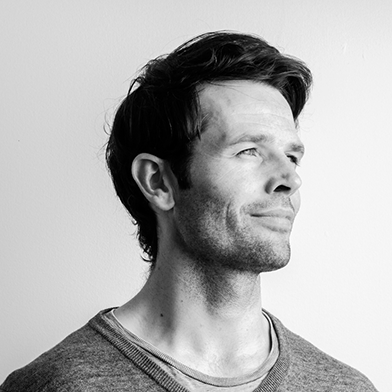
Gwenael Lewis
Art Director/Film Director
Gwenael is an award-winning filmmaker who has worked for brands like Chanel and Louis Vuitton. He brings his finely-honed sensibility to EOV’s visual expression and has been deeply involved in the design of the program.
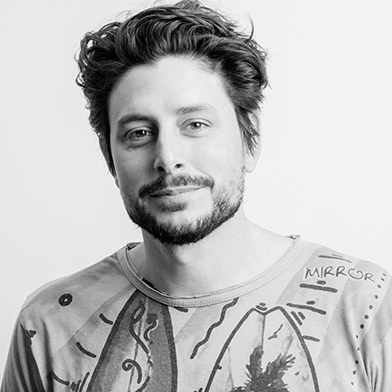
Edo Van Breemen
Composer/Sound Designer
Edo is a highly regarded composer who works on immersive sound therapy for meditation and trauma recovery. His scores for EOV create a healing musical dimension to the program.
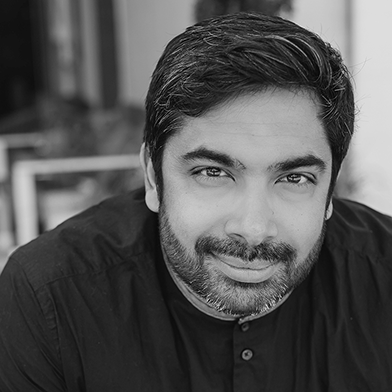
Sirish Rao
Chief Storyteller
Sirish Rao is a writer, recognized among other things, for his award-winning re-tellings of Greek plays for the J. Paul Getty Museum. He is responsible for the way in which EOV expresses itself to the world.
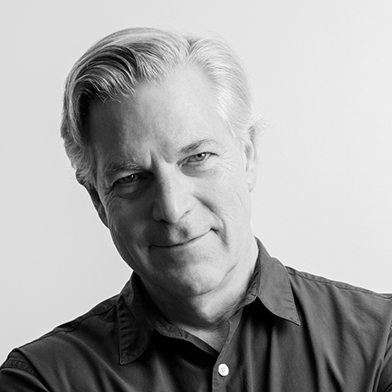
Douglas Toews
Creative Director
Douglas Toews (former Chief Creative Officer at Coty), was EOV’s founding Creative Director, and was integral to the conception, direction and expression of EOV Wellness Project™. We mourn his passing in 2019 and are thankful to have had his vision and dedication to the project.
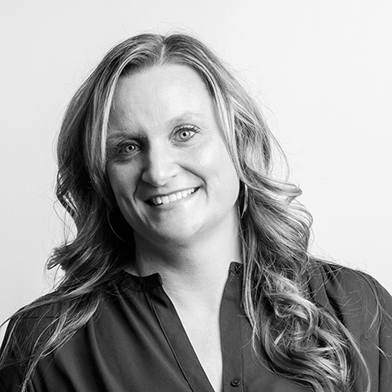
Terra Slade
Director of Marketing and Client Relations
Terra is a marketing veteran and the former Director of Marketing and Client Relations at EOV. She showed future clients the value of investing in the overall well-being of employees by helping them achieve a better, more balanced life in and outside of the office.
